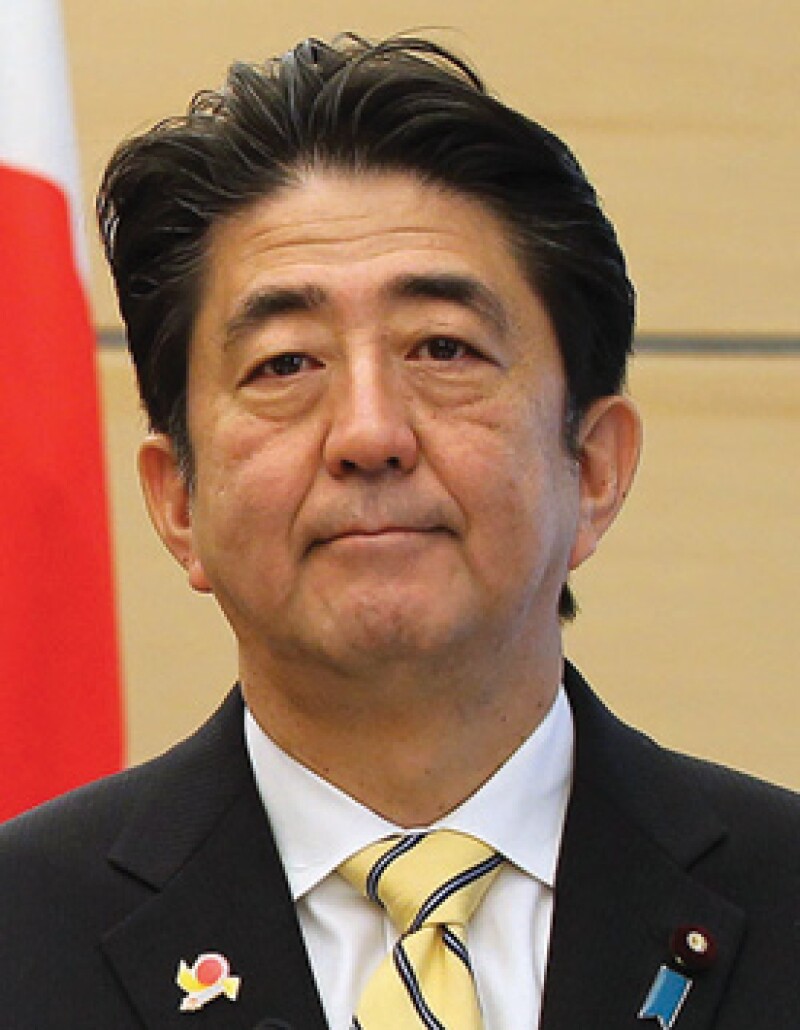
|
Shinzo Abe was also in the Global Tax 50 2013 |
To discuss Japan's prime minister Shinzo Abe with reference only to April's consumption tax increase would be a disservice to his wider impact on tax. Abe re-entered politics under the scope of economic reforms now known as 'Abenomics', faced with a heavy burden of government debt to GDP and a rapidly aging population. Though his policies aimed to stimulate Japan's listless economy, many Japanese have yet to see any growth, leading some to question their leader's brand of 'Abenomics'. Fiscally conservative Abe inherited a consumption tax increase from his previous administration, though he has taken much of the flak for Japan's recessional dip in the second and third quarters of 2014 after the introduction of the increase. The consumption tax rose from 5% to 8%, but the increase was enough to stymie Japanese consumer spending.
Though the short-to-medium economic outlook is bleak, the benefits of an increase may not be felt for another few years as Abe amends consumption tax in other ways.
In 2015, Abe is changing the applicability of consumption tax on e-commerce. The tax is levied at the jurisdiction of production. This allows foreign firms to sell to Japan tax-free, while local firms absorb the tax cost. Now the tax will be levied at the jurisdiction of consumption, requiring foreign firms to pay tax in Japan. The move will possibly stimulate jobs as e-commerce businesses set up branches in Japan to cater to customers there.
Abe is also considering reducing consumption tax on vital consumer goods such as food. Though no formal announcement will be made until after his re-election, insiders say the rate will likely be dropped to ease the burden on low income households.
Abe's other promised reforms have been nearly forgotten. Japan's corporate tax rate – one of the highest in the world at around 35% – will be decreased in fiscal year 2015. Previous administrations hesitated to drop the rate because only one-third of Japanese corporations pay income tax. Though numbers have not been formally announced, economists suggest dropping the rate several percentage points to below 30%.
Abe has also introduced new corporate tax incentives and better transfer pricing guidelines on permanent establishment and profit attribution.
"I believe there will come a day when the economy will start a virtuous circle that will be felt in every corner of the nation. There are always those who criticise, but those people never come up with an alternative," said Abe, defending his tax position to the Financial Times in November.
Abe called a snap election for December to secure a mandate for his economic programme after just two years in power, a gamble which paid off when his Liberal Democratic Party secured more than half of the votes despite a disappointing voter turnout. With a coalition partner, Abe now has the two-thirds majority necessary to pass laws without the approval of the upper house, thus ensuring he is able to build on this year's influence throughout 2015.
Regardless of whether his policies have made an immediate impact, the Japanese leader has undeniably been one of the most spoken-of figures in the tax world this year and is poised to stick around for another four years.
The Global Tax 50 2014 |
||
|---|---|---|
| Gold tier (ranked in order of influence) 1. Jean-Claude Juncker 2. Pascal Saint-Amans 3. Donato Raponi 4. ICIJ 5. Jacob Lew 6. George Osborne 7. Jun Wang 8. Inverting pharmaceuticals 9. Rished Bade 10. Will Morris Silver tier (in alphabetic order) Joaquín Almunia • Apple • Justice Patrick Boyle • CTPA • Joe Hockey • IMF • Arun Jaitley • Marius Kohl • Tizhong Liao • Kosie Louw • Pierre Moscovici • Michael Noonan • Wolfgang Schäuble • Algirdas Šemeta • Robert Stack Bronze tier (in alphabetic order) Shinzo Abe • Alberto Arenas • Piet Battiau • Monica Bhatia • Bitcoin • Bono • Warren Buffett • ECJ Translators • Eurodad • Hungarian protestors • Indian Special Investigation Team (SIT) • Chris Jordan • Armando Lara Yaffar • McKesson • Patrick Odier • OECD printing facilities • Pier Carlo Padoan • Mariano Rajoy • Najib Razak • Alex Salmond • Skandia • Tax Justice Network • Edward Troup • Margrethe Vestager • Heinz Zourek |
||









